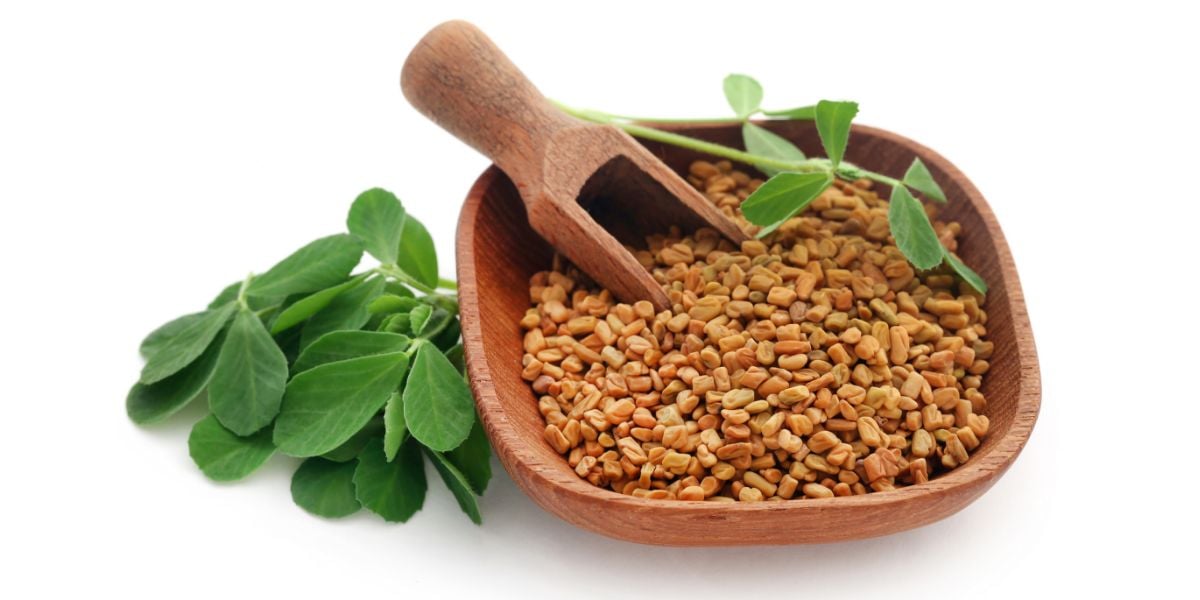Fenugreek is an aromatic plant that has many uses, both culinary – fenugreek is a key ingredient of curries and other Indian recipes – and medicinal.
The plant, which is widely grown in South Asia, North Africa and parts of the Mediterranea, has small round leaves and also produces long pods that contain distinctive bitter-tasting seeds.
The leaves are either sold as a vegetable (fresh leaves, sprouts, and microgreens) commonly known as methi, or as an herb (dried leaves), while the seeds are used both whole and in powdered form as a spice.
As well as being a popular cooking ingredient, fenugreek has a number of health benefits and is used in both Ayurvedic and traditional Chinese medicine.
How does it affect diabetes?
Fenugreek seeds (trigonella foenum graecum) are high in soluble fibre, which helps lower blood sugar by slowing down digestion and absorption of carbohydrates This suggests they may be effective in treating people with diabetes.
Multiple studies have been carried out to investigate the potential anti-diabetic benefits of fenugreek.
Of these, several clinical trials showed that fenugreek seeds can improve most metabolic symptoms associated with both type 1 and type 2 diabetes in humans by lowering blood glucose levels and improving glucose tolerance
In one study, researchers in India found that adding 100 grams of defatted fenugreek seed powder to the daily diet of patients with insulin-dependent (type 1) diabetes significantly reduced their fasting blood glucose levels , improved glucose tolerance and also lowered total cholesterol , LDL or ‘bad’ cholesterol and triglycerides.
In another controlled trial, incorporating 15 grams of powdered fenugreek seed into a meal eaten by people with type 2 diabetes reduced the rise in post-meal blood glucose, while a separate study found that taking 2.5 grams of fenugreek twice a day for three months lowered blood sugar levels in people with mild, but not severe, type 2 diabetes.
What other health benefits does it have?
Fenugreek seeds are a rich source of vitamins, minerals and antioxidants, which help protect the body’s cells from damage caused by unstable molecules known as free radicals.
For centuries they have been (and are still) used by nursing mothers to help stimulate the production of breast milk during pregnancy and following childbirth. Due to their powerful antiviral properties, they are also commonly used as an herbal remedy for colds and sore throats.
In addition, researchers believe fenugreek seeds may be effective in the treatment of arthritis, high cholesterol, skin problems (wounds, rashes and boils), bronchitis, abscesses, hair loss, constipation , upset stomach, kidney ailments, heartbur, male impotence and other types of sexual dysfunction.
Where can I buy it?
Fenugreek leaves (methi) and seeds can be found in most Asian food stores, while herbal supplements containing fenugreek seed powder and/or fenugreek seed extract in capsule form are available through most health food companies.
Caution
Before using fenugreek to treat your diabetes, consult your GP and diabetes healthcare team to ensure it is safe. As with other blood sugar-reducing herbs, there is the risk that fenugreek may cause your blood sugars to go too low ( hypoglycemia ) when taken alongside prescribed diabetes drugs. As a result, the dose of your anti-diabetic medication might need to be changed.





